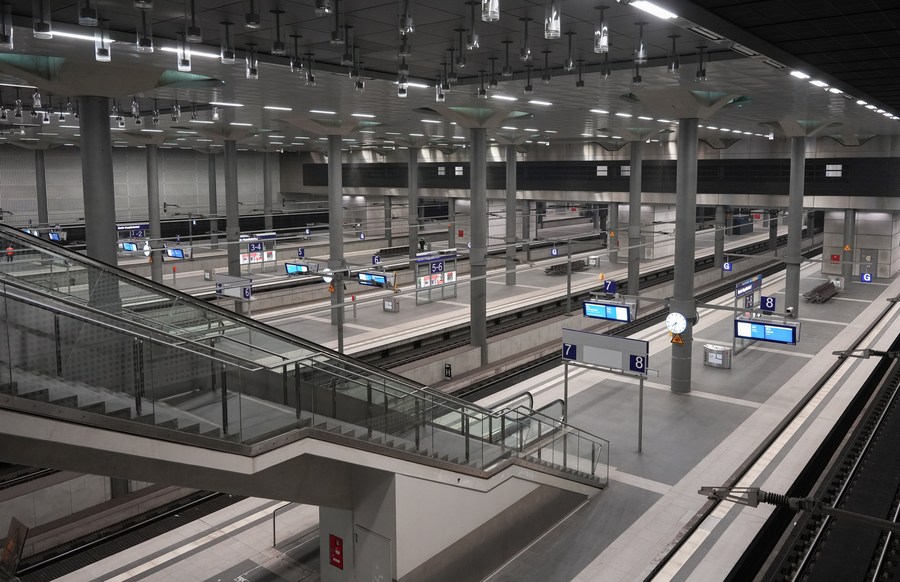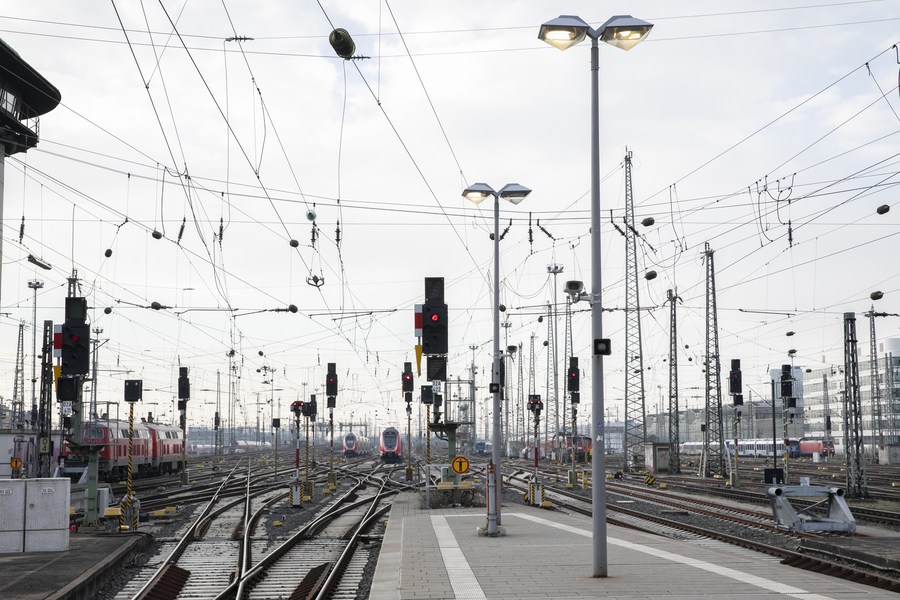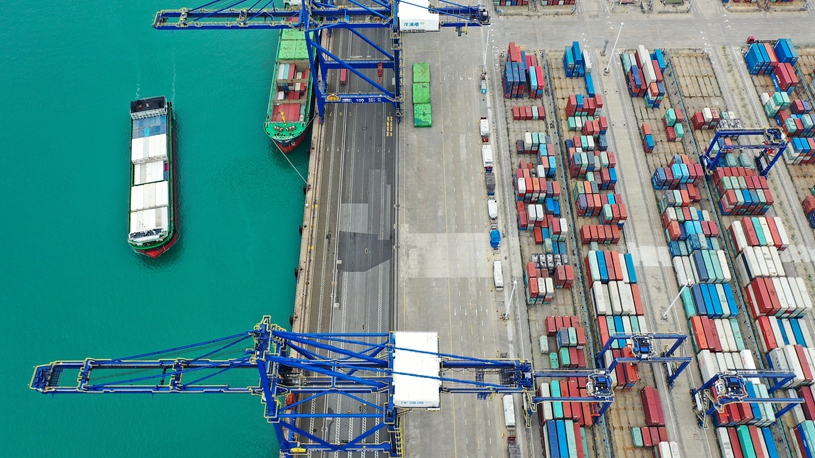
This photo taken on Jan. 10, 2024 shows empty platforms at Berlin Central Train Station in Berlin, Germany. Train drivers in Germany went on strike for three days, severely restricting passenger transport across the country. (Photo by Stefan Zeitz/Xinhua)
The German Economic Institute estimates that a single day of a nationwide rail strike costs up to 100 million euros (109 million U.S. dollars) in economic output.
BERLIN, March 15 (Xinhua) -- Frequent strikes by rail and air staff in Germany could bring negative consequences for the country as a business location, an employers' association warned Friday.
Steffen Kampeter, managing director of the Confederation of German Employers' Associations (BDA), told Rheinische Post newspaper: "The strikes in critical infrastructure are not only annoying, they are also a brake on growth." The economic damage "not only concerns the companies directly affected, but the entire economy," he added.
The German Economic Institute (IW) estimates that a single day of a nationwide rail strike costs up to 100 million euros (109 million U.S. dollars) in economic output.

This photo taken on Jan. 10, 2024 shows trains at Frankfurt central station in Frankfurt, Germany. (Xinhua/Zhang Fan)
"The loss of confidence in the reliability of the infrastructure is a disadvantage for the location," said Kampeter, criticizing the unions' actions as "disproportionate." He called on legislators to "make a clear commitment that industrial action must remain the exception."
Although the government cannot interfere in an ongoing wage dispute, Minister of Transport Volker Wissing told public broadcaster ARD that "we will take a very close look at this."
"Once this wage dispute has been resolved, we will have to examine whether we need a change or not," he added. (1 euro = 1.09 U.S. dollar) ■











